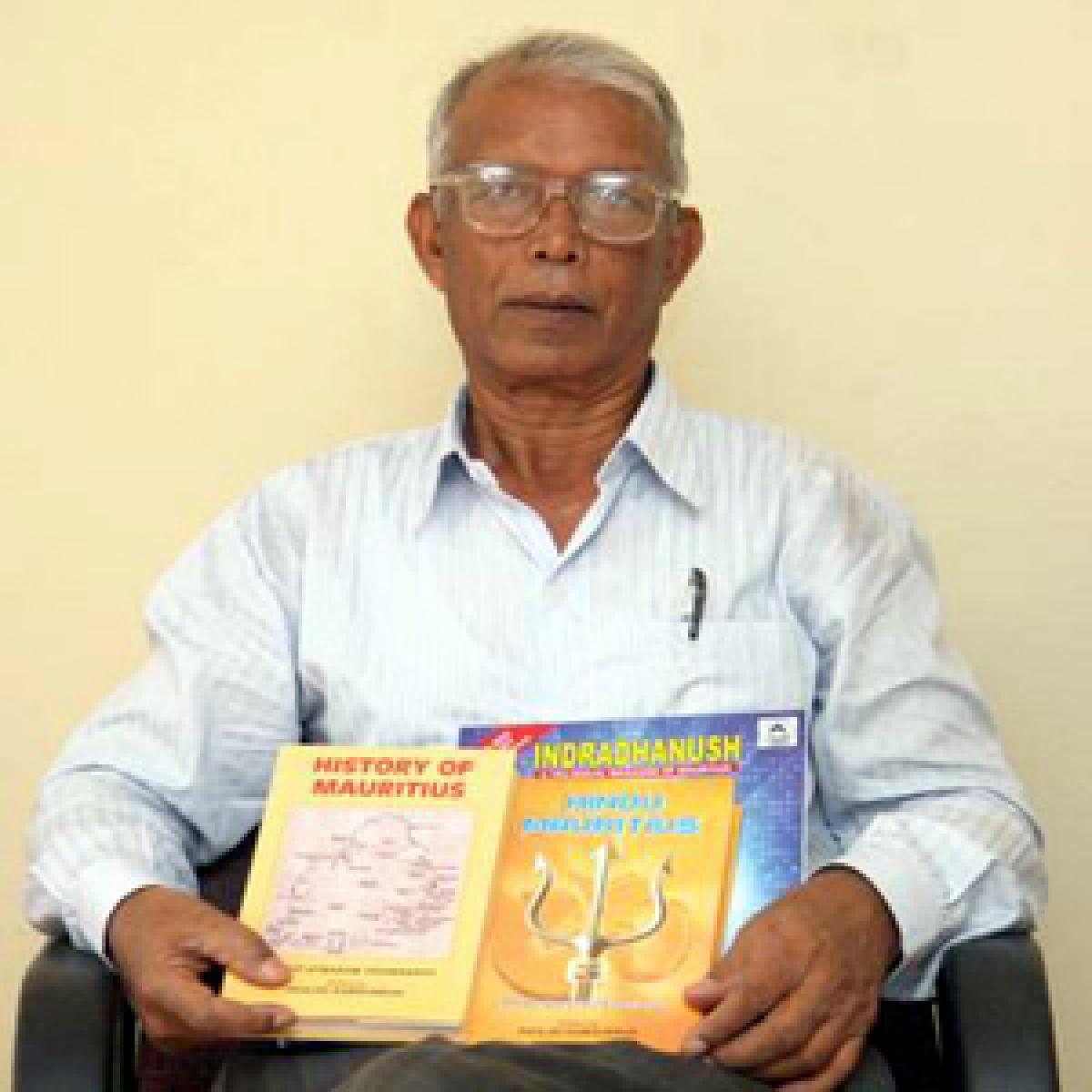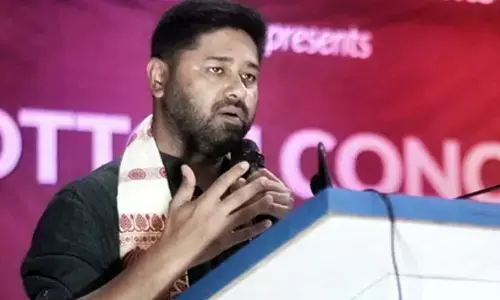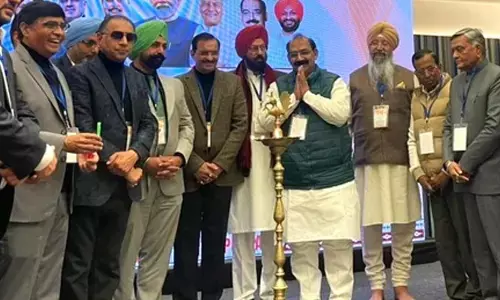Promoting Hindi in Mauritius

Pahlad Ramsurrun is a prize-winning writer and author of 70 books including ‘Folk tales of Mauritius’ and ‘The Stay of Mahatma Gandhi in Mauritius’ and others. He is also the chief editor of the trilingual literary quarterly, ‘Indradhanush’, published in Hindi, English, and French.
Pahlad Ramsurrun is a prize-winning writer and author of 70 books including ‘Folk tales of Mauritius’ and ‘The Stay of Mahatma Gandhi in Mauritius’ and others. He is also the chief editor of the trilingual literary quarterly, ‘Indradhanush’, published in Hindi, English, and French.
“My book ‘Mauritius history’ was written from the perspective of British history, ‘The history of the Arya Samaj’ was also my book. ‘The Stay of Mahatma Gandhi in Mauritius’ outlines the visit of Gandhiji to Mauritius. He was there only for 18-19 days while he was travelling from South Africa to Mumbai and nobody was aware of his stay.
The interesting thing was he was staying with a Muslim friend, Hussain. Through my books I just wanted to share my knowledge and about people,” says Pahlad.
Pahlad belongs to the first generation of teachers who taught Hindi in Mauritius. He was a daily wage labourer and today author of over 70 books. About his journey from a labourer to an author he says, “I want to give credit to the Delhi University, which gave me degree in Hindi in 1973.”
Talking about his visit to Hyderabad, Pahlad says, “I came to Hyderabad to meet Princess Indira Dhanrajgir and discussed various aspects of life. And I have a special connection with Bharat.”
His connection with India is very unique, he says. “My ancestors were from Dhanora village in Bihar and shifted to Mauritius in 1898 to work as Girmitiye (bonded labourers). I am the fourth generation offspring. My great-grandfather was a bonded labourer for five years.
When they reached there, they came to know that they were indentured labourers with a number (bonded labourer number). They used to cut down the forest to make it suitable for agriculture and after five years they were free and independent. Being in that family in my childhood even I worked in sugarcane fields and used to earn Rs 5 as daily wage.”
Pahlad received his early education in French and English. He says, “In the early days Mauritius schools did not teach Hindi. But when I grew up I saw that Arya Samaj schools started teaching Hindi. And I started teaching Hindi in Arya Samaj meetings earning Rs 25 per month.
While earning I wanted to save some amount to buy a house. Later I realised that education is more important than buying a house. I was 30-year-old when I got enrolled in the College of Delhi University. Even when I was in Mauritius I used to write articles in Hindi which featured in local magazines.
During my first year of degree I wrote an article in Hindi but my teacher did not like it. After a year when I wrote another article in Hindi my teacher appreciated it and then my writing journey started. In those days, an article written during my studies was published in a prestigious magazine.”
He says, “When I joined College of Delhi University I wrote a letter to the Government of India for scholarship, but I got the reply that Hindi students were not given scholarships. I do not know how the letter reached the Ministry of Education and the Ministry of Foreign Affairs at that time, later the Government had decided to give scholarship to students who came to pursue Hindi although I finished my degree by then.”
He points out that today 320 schools in Mauritius teach Hindi and after higher education students are coming to India for further studies. “Because of Hindi I became a teacher, education officer and then became a writer.”
His books cover philosophy, culture, history and language. Some of his books on literature have been translated into other languages.
He points out that since the start of the three-language magazine he encouraged people to contribute to it. In response to a question, he said in Mauritius Hindi, French and English have equal standing and 12 years of compulsory education is in Hindi.








